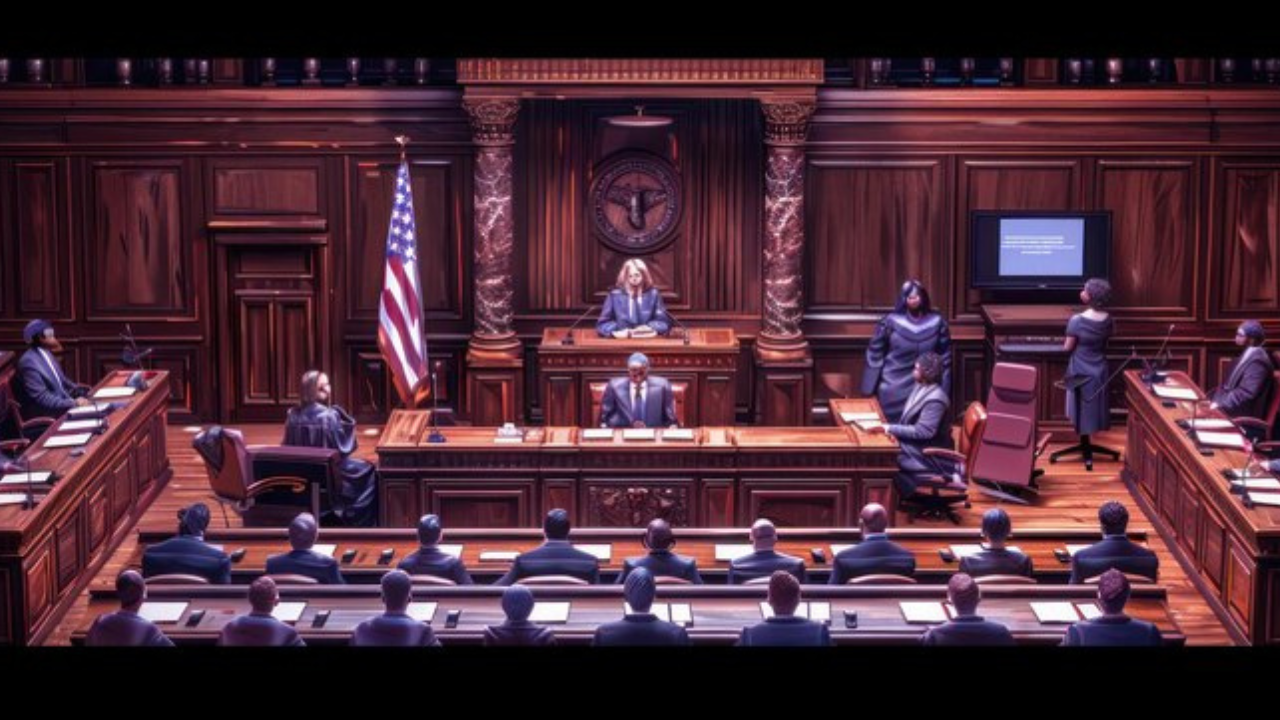The c.w. park usc lawsuit has captured the attention of legal experts, university students, and local residents alike. As tensions rose between C.W. Park and the University of Southern California (USC), a complex web of allegations emerged, sparking debates about ethics in academia and accountability in higher education. This legal battle is more than just a courtroom drama; it’s a story that touches on fundamental issues affecting universities nationwide. With key players involved and dramatic twists unfolding, dive into this gripping saga to uncover what really happened inside the courtroom during one of the most talked-about lawsuits in recent memory.
Key Players Involved in the Legal Battle
The c.w. park usc lawsuit features several key players who have shaped the narrative of this high-stakes legal battle.
At the forefront is C.W. Park himself, a notable figure whose claims sparked widespread attention. His allegations against USC brought significant scrutiny to the university’s practices and policies.
On the other side, we find representatives from USC, including their legal team tasked with defending the institution’s reputation. They argue that the actions taken were in line with established guidelines.
Additionally, various stakeholders such as students, faculty members, and community advocates closely monitor developments. Their opinions reflect a range of perspectives on how this case impacts not only USC but also broader educational standards.
Each player’s involvement adds layers to an already complex situation, driving discussions beyond just courtroom proceedings into public discourse on ethics and accountability within higher education institutions.
Timeline of Events Leading up to the Lawsuit
The timeline of events leading to the c.w. park usc lawsuit is filled with tension and conflict. Initial friction began when disputes over property rights surfaced in early 2022.
By mid-2022, allegations regarding financial misconduct started circulating within community forums. Stakeholders began to feel uneasy as these claims gained traction.
In late 2022, both parties attempted informal negotiations, but discussions quickly broke down. Frustrations mounted as neither side could reach a consensus on key issues.
As tensions escalated into early 2023, formal complaints were filed against USC by C.W. Park’s team. This marked a pivotal turning point in their relationship.
The public took keen interest in the unfolding drama, which added pressure to resolve matters swiftly before they reached the courtroom stage. Fears about reputational damage loomed overhead for all involved parties at this juncture.
Allegations Against USC and c.w. park
The c.w. park usc lawsuit centers around serious allegations that have raised eyebrows across the academic community. Plaintiffs claim negligence on USC’s part, asserting that the institution failed to uphold safety standards.
Additionally, there are accusations of misconduct related to financial dealings involving c.w. Park. Some argue that funds were mismanaged or misappropriated, leaving stakeholders feeling betrayed.
Witnesses in the case have come forward with troubling testimonies about interactions within university administration. These accounts paint a picture of a culture resistant to transparency and accountability.
Furthermore, concerns regarding student welfare echo throughout these allegations, suggesting a disregard for those directly affected by decisions made at higher levels of management. The implications of such claims could shake the foundation upon which USC stands firmly today.
Impact on the University and Community
The c.w. park usc lawsuit has sent ripples through the university and surrounding community. Students, faculty, and alumni have found themselves caught in a whirlwind of uncertainty.
For many at USC, this lawsuit isn’t just a legal issue—it’s personal. It raises questions about ethics, accountability, and the values that define their institution. The spotlight has shifted to university policies and practices that some believe need reform.
Community members are also feeling the weight of this case. Local businesses often rely on campus activities for foot traffic; any negative publicity can deter visitors.
Conversations around transparency and trust have become prevalent in public forums as people rally for change within the educational system. This situation highlights how intertwined universities are with their communities—a relationship strained by controversy yet essential for growth and collaboration.
Courtroom Drama: Highlights from the Trial
The courtroom buzzed with tension as the trial unfolded. Lawyers on both sides delivered passionate arguments, each striving to sway the jury’s perception of the c.w. park usc lawsuit.
Witnesses took the stand, recounting their experiences in vivid detail. Their testimonies painted a complex picture that captivated everyone present. Some spoke emotionally about their interactions with university officials, while others recounted pivotal moments tied to allegations against USC.
Surprise revelations emerged during cross-examinations. Unexpected evidence sparked debates among attorneys and kept spectators on edge. Jurors leaned forward, eager for clarity amid swirling claims and counterclaims.
A palpable energy filled the room when expert witnesses provided insights into industry standards and practices related to the case at hand. Each statement seemed to carry weight, influencing how jurors processed conflicting narratives revolving around this high-stakes legal drama. As day turned to night, anticipation grew regarding how it would all unfold next—who would prevail in this gripping saga?
Outcome of the Lawsuit and Its Implications
The verdict in the c.w. park usc lawsuit sent shockwaves through the legal community. The court ruled against USC, marking a significant moment in higher education law.
This decision not only affected USC but also set a precedent that other universities are now closely watching. Legal experts predict ripple effects throughout academic institutions nationwide.
Moreover, the ruling has sparked discussions about university governance and accountability. Students and faculty alike are reassessing their roles within such organizations.
Financially, this outcome could lead to increased scrutiny of funding practices at universities across the country. Transparency may become paramount as stakeholders demand clearer accountability measures.
This lawsuit underscores the importance of fair treatment within academic environments. It serves as a reminder that individuals can stand up for their rights against larger institutions.
Lessons Learned and Future Actions
The c.w. park usc lawsuit has opened a crucial dialogue about accountability in higher education. Institutions must prioritize transparency to build trust within their communities.
One significant lesson is the importance of proactive communication. Universities should foster open channels for addressing grievances before they escalate into legal disputes.
Furthermore, stakeholders must recognize the power dynamics at play. Equitable treatment and consideration for all parties can prevent future conflicts.
Looking ahead, educational institutions may need to revisit their policies on conflict resolution. Training staff and administrators in mediation techniques could prove invaluable.
Engaging with community voices also stands out as vital moving forward. By including diverse perspectives, universities can create a more inclusive environment that encourages collaboration rather than contention.
Embracing a culture of reflection will help organizations learn from past experiences and adapt accordingly as challenges arise in an ever-evolving landscape.
Conclusion
The c.w. park usc lawsuit has ignited significant conversations around accountability, ethics, and the responsibilities of educational institutions. As both sides presented their arguments in court, it became clear that this case extends beyond mere legalities; it touches on fundamental issues facing universities today.
The outcomes from this high-profile trial have the potential to reshape policies not just at USC but across other academic institutions as well. Stakeholders are watching closely, eager to see how these developments will influence governance and transparency in education.
As lessons emerge from the courtroom drama, it’s vital for communities and universities alike to engage in dialogue about best practices moving forward. The c.w. park usc lawsuit serves as a reminder of the complex interplay between individuals and organizations within higher education landscapes. With ongoing scrutiny and new regulations likely following this case, future actions will undoubtedly be influenced by what transpired within those courtroom walls.











